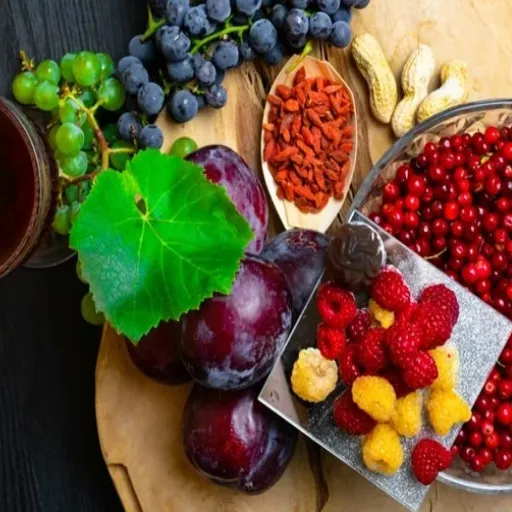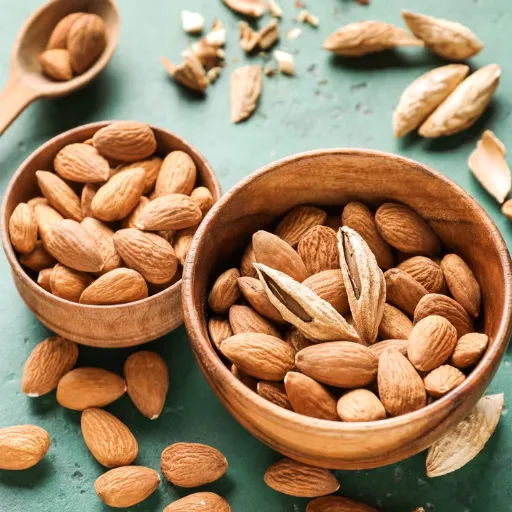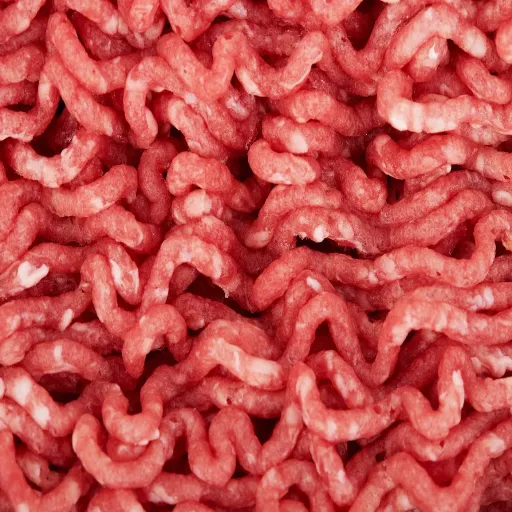Resveratrol has been a hot topic in the health and wellness sphere, especially due to its natural compound status, which comes with the promise of great benefits for the body and mind. This powerful antioxidant, which is found in many foods and drinks, has been associated with better heart health, the slowing down of the aging process, and even the ability to fight cancer. But what is resveratrol in the first place, and what are the ways in which the addition of resveratrol-rich foods to your diet could result in the uplift of your general well-being? This article aims to shed light on the scientific evidence behind resveratrol, the exploration of its fantastic health benefits, and the presentation of some of the best food sources with this incredible nutrient. Be prepared to learn about the small compound that could have a significant impact on your health!
Understanding Resveratrol
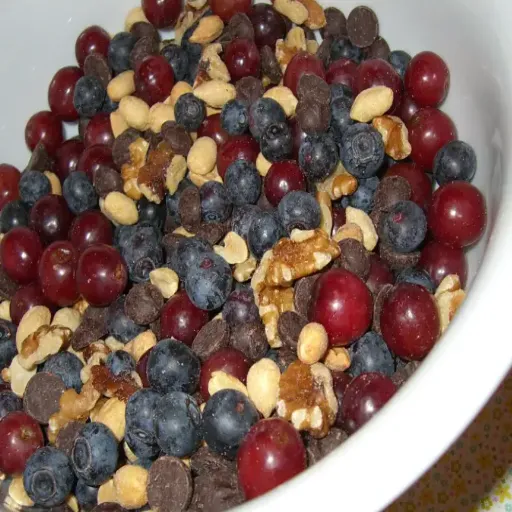
What is Resveratrol?
Resveratrol is a natural substance that is a polyphenol by definition and is mainly found in some plants, fruits, and nuts. The most common association is that with the red grape skin, that’s why red wine is often considered a source of this compound. Plants use this compound as a shield against the lethal environmental stressors like infections or excessive UV light.
The main reason why resveratrol is so appealing is that it has antioxidant properties, which are responsible for helping the body fight oxidative stress caused by free radicals. Resveratrol, by the steps of neutralizing these dangerous molecules, thus, contributes to cell protection from death that would otherwise result in chronic diseases like heart ailments or diabetes. This by-product of nature through the life-giving process in the body positions resveratrol as a possible partner in the fight against aging and inflammation.
Moreover, besides the antioxidant activity, resveratrol has indicated that it may be beneficial for the health of the heart. It is believed that it helps by making the flow of blood better, lowering blood pressure, and keeping the heart safe against such situations as atherosclerosis. Although studies are being conducted to comprehend its full potential, resveratrol is still considered an attractive component of a well-rounded diet due to its presence in many natural and healthy speaking foods.
The Significance of Resveratrol as a Polyphenol
Resveratrol is a polyphenol that has gained widespread recognition mainly due to its effect as an antioxidant. Antioxidants are compounds that help to eliminate the presence of free radicals, which are unstable particles that have the capacity to destroy cells and make the aging process faster as well as cause chronic diseases. Thus, resveratrol is regarded as a possible healer for oxidative stress and a shield against health issues related to it, like heart diseases and neurodegenerative disorders.
Resveratrol’s role as a promoter of cardiovascular health is yet another remarkable feature. Research claims that it is proactive in enhancing blood flow, lowering the level of bad cholesterol, and reducing blood pressure, all of which are critical in the fight against heart attacks and strokes. The link between resveratrol and the “French Paradox,” where people drinking red wine show a significantly lower incidence of heart disease, is a strong indicator of the substance’s significance. Nonetheless, it should be understood that along with moderation in alcohol consumption, resveratrol can be acquired from non-alcoholic sources like grapes, berries, and peanuts.
Resveratrol has also been a subject of study regarding its effects on longevity and its potential ability to support life in general. By activating certain proteins involved in cellular health and aging processes, such as sirtuins, it is believed that the body could become more tolerant to age-related diseases. The research that is being done is intended to determine more precisely the extent of the beneficial effects that resveratrol has; however, it might be a practical and useful step for those who wish to have good health in the long run, to include foods rich in resveratrol in their diets.
Health Benefits of Resveratrol
Resveratrol, a naturally present compound in red grapes, berries, and peanuts, among others, possesses a range of possible health benefits. Its antioxidant capability, which can guard the body’s cells against damage from harmful free radicals, is one of its prominent attractions. This, in turn, may help to diminish the chances of chronic diseases, for instance, heart ailments and some kinds of cancer.
Moreover, resveratrol reportedly leads to cardiovascular health. Its ability to relax the blood vessels and thus lower blood pressure, which is supported by the research, further enhances the blood flow and circulation. The heart-related issues’ risk is also reduced by the anti-inflammatory activity of resveratrol, which, in turn, hampers the formation of plaques in arteries.
As a matter of fact, researchers have recently reported evidence that resveratrol could be of value in preserving brain health. Its ability to shield the brain from oxidative damage and inflammation, two major contributors to Alzheimer’s and Parkinson’s Disease, is the reason for its being considered. These preliminary findings that more clinical studies still need to be done to clarify it completely are nonetheless quite encouraging for including resveratrol in the anti-aging and cognitive-supporting diet. However, under the supervision of a medical professional, adding either food or supplements rich in resveratrol to the diet is a wise and health-promoting decision.
Foods High in Resveratrol
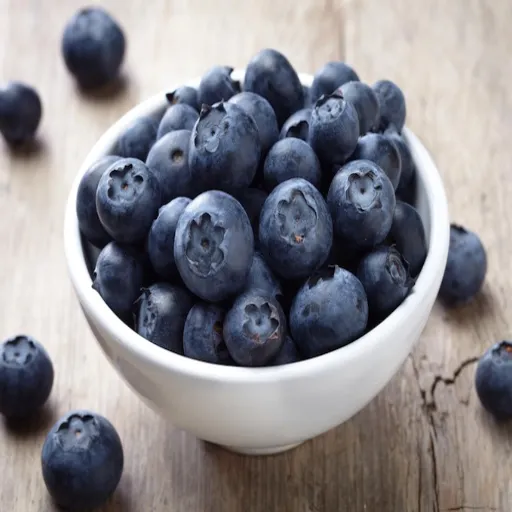
Berries: Blueberries and Cranberries
Rich in resveratrol, a powerful antioxidant, are natural sources such as blueberries and cranberries, which are among the top ones. Along with the significant amount of the compound, these berries are also packed with other essential nutrients like vitamins C and K, dietary fiber, and various phytonutrients. Blueberries, often referred to as “superfood,” are praised for their power to fight oxidative stress and inflammation, both of which are associated with aging and chronic diseases. Likewise, cranberries are recognized for supporting urinary tract health, but their high resveratrol content provides added justification for their nutritional value.
Scientific studies have revealed that the habitual intake of both blueberries and cranberries can lead to health benefits. Blueberries, for instance, are thought to have a positive effect on brain health by improving cognitive function and memory, especially in older populations. One of the antioxidant properties neutralizes the free radicals responsible for cellular damage. As for cranberries, they are being investigated for their ability to prevent urinary tract infections because the bioactive compounds in them may stop the harmful bacteria like Escherichia coli from the urinary tract’s lining. The resveratrol in both berries reinforces their role in the body’s fight against inflammation-associated diseases and aids the physiological state of the body.
When it comes to mixing these berries into the diet, think about putting fresh or frozen blueberries and cranberries in smoothies, cereals, or salads. Unsweetened cranberry juice is an alternative, although it should be taken cautiously due to its flavor. Those who want a more potent resveratrol dose can also add dried blueberries or cranberries and their extracts to a balanced diet. Whichever method you go for, regular intake of these nutrient-dense berries will not only be delightful but will also be an effective way to enhance overall health.
Pistachios: A Nutty Source of Resveratrol
Pistachios are a tasty snack and also an unexpected source of resveratrol, a potent antioxidant recognized for its possible health advantages. This mineral, frequently linked with grapes and berries, can also be found in small amounts in pistachios, thus making them a distinct part of a diet aimed at fostering longevity and heart health. Due to their rich nutritional content, pistachios have been connected with decreased cholesterol levels, enhanced blood flow, and heart function when included in a well-balanced diet.
Pistachios are a great source of dietary fiber, good fats, and also essential minerals like potassium and magnesium which makes them great for general health and also a good help in weight control. Resveratrol found in pistachios undergoes a partnership with other plant compounds to protect one from oxidative stress and inflammation in the body. These properties are particularly useful in the prevention of chronic diseases like heart disease and diabetes type 2. The skin of the antioxidants in pistachios may also benefit the entire aging process providing an advantage beyond internal health.
Pistachios are now being studied for their role in a dietary pattern that is rich in resveratrol coming from different food sources. Their resveratrol content does not compare with that of red wine or berries but their diversity of other nutrients makes them still a good choice. Their versatility in meals or snacks makes them perfect as they can be consumed just like that, added to salads, or incorporated into recipes for taste and nutrition. If you make pistachios a regular part of your diet, you will get to indulge in their nutty flavor while also enjoying health benefits.
Dark Chocolate: A Delicious Treat
Dark chocolate is considered not only a mere delightful delight but also a great source of numerous health benefits that make it a wise addition to a wholesome diet. Dark chocolate, which is full of antioxidants such as flavonoids, might help the body to fight free radicals, therefore, diminishing oxidative stress and controlling cell injury. These compounds have been remarkably credited for their contribution to bettering heart health, thus rendering dark chocolate as a wonderful option for people who want to promote their cardiovascular wellness. Eating small amounts of dark chocolate containing 70% cocoa or even richer allows you not only to swallow the most amount of good nutrients but also to keep the added sugars at their lowest.
It is evidenced that dark chocolate could also be cognitively advantageous as the flavonols are the very ones that improve brain activity through increased blood flow to the brain. It may thereby activate memory, sharpen attention, and even uplift one’s spirit, thus offering a tasty way of maintaining mental alertness. On top of that, taking dark chocolate in moderation will help control your stress levels as it has the power to cause the release of endorphins, the body’s very own ‘feel-good’ agents.
If you want to add dark chocolate to your meals, always select the best quality products that have a high cocoa content and are the least processed. A couple of dark chocolate squares can be a delicious, satisfying treat on their own or accompany fruits such as berries and nuts. It can also be melted and drizzled over oatmeal or yogurt for a deliciously indulgent yet nutritious experience. By making conscious chocolate selections and practicing mindful consumption, you could be satisfying your cravings and at the same time reaping the benefits of this wonderful food that promotes health.
Scientific Evidence Supporting Resveratrol’s Effects
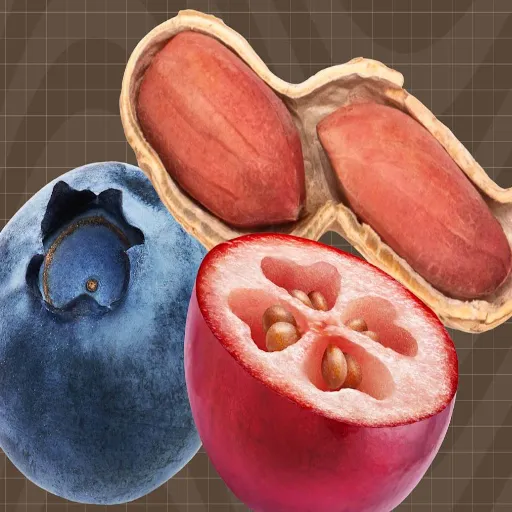
Resveratrol and Heart Health
Resveratrol has been the subject of considerable research and debate regarding its potential cardiovascular benefits, thus gaining the limelight. This natural polyphenolic compound, mainly found in red grapes, berries, and peanuts, is assumed to benefit the heart in various ways like through its action on blood vessels, lessening inflammation, and counteracting the devastation caused by oxidation. One of the mechanisms through which resveratrol works is by stimulating the production of nitric oxide, which is a molecule that dilates blood vessels, thus facilitating blood flow and lowering blood pressure. Therefore, all these benefits will be collectively responsible for supporting cardiac health and decreasing the chances of developing heart-related disorders.
On top of that, several studies conducted on humans have also shown that resveratrol might lead to positive changes in cholesterol levels. This compound enhances the formation of HDL (high-density lipoprotein) cholesterol, which is commonly known as “good cholesterol” and at the same time diminishes the presence of LDL (low-density lipoprotein) cholesterol, which is referred to as “bad cholesterol.” This conjoined action is very influential in minimizing the likelihood of arteriosclerosis (buildup of fat and hence blockage of arteries) which in turn will prevent disorders such as coronary artery disease and heart attacks. Though further studies are being carried out to determine the best dosage and the long-term impact, these findings have lifted the mood of resveratrol being a choice for a synergistic approach to cardiac care.
Besides that, adding resveratrol to a well-balanced diet is straightforward and powerful. Eating fruits that are already packed with this natural compound, for instance, fresh grapes or taking moderate amounts of red wine, can already be categorized as part of a cardiac-friendly lifestyle. Moreover, resveratrol-based dietary supplements are no longer a scarce product and can very well support a comprehensive approach to cardiovascular health. Nonetheless, it is necessary that the healthcare professional is consulted regarding any supplement regimen, including resveratrol, in order to determine the safety and suitability for the patient. Ultimately, this compound is considered to be an effective tool in the management of heart diseases, offering both preventive and curative possibilities.
Impact on Longevity
Various studies have pointed out that the compound resveratrol might be the major factor responsible for the prolongation of life by acting on different biological pathways. It was even shown that its influence on the extending of life was the same in different organisms, from yeast to mammals. A list of five important facts and figures related to resveratrol’s role in longevity is presented below:
SIRT1 Enzyme Activation
Resveratrol is considered to be a sirtuin activator, especially of SIRT1, which is connected to the regulation of cells and longer life. The sirtuins’ role in the cell aging process is to slow it down by encouraging the repairing of the DNA and assuring the stability of the genome.
Simulates Caloric Restriction Effects
The studies have shown that the effect of resveratrol is similar to that of caloric restriction, which is a method that is known to prolong life. Resveratrol does so by directing the same metabolic pathways as caloric restriction does, thus making the body more efficient in terms of energy use and enhancing the functioning of mitochondria.
Oxidative Stress Decrease
Resveratrol has a strong antioxidant property and is therefore capable of minimizing the damage that free radicals cause to the cells. It does so by reducing the oxidative stress, thus keeping the cells young and preventing them from being affected by the diseases that usually come with aging.
Better Cardiovascular Health
Resveratrol’s ability to increase heart health by decreasing inflammation and improving the functioning of the blood vessels means that it can prevent diseases that are often followed by death, like heart attack and stroke, thus prolonging life.
AMPK Pathway Modulation
Resveratrol’s action on the AMPK pathway, the main controller of the energy balance, is another way it exerts its power on longevity. This action to the metabolism, thus enabling the cells to have more energy and reducing the age-related decrease in the function of the organism.
These various actions, however, still need to be confirmed for human subjects as they might already be enough to classify resveratrol as a longevity-promoting compound.
Effects on Cognitive Function
Resveratrol is a compound that has been implicated in cognition enhancement through different mechanisms and research-based assertions. The following are five scientifically supported main effects of resveratrol:
Neuroprotection
The antioxidant and anti-inflammatory effects of resveratrol lead to neuroprotection of neurons, i.e., more health and longevity for the cells.
Improved Memory
The enhancement of the memory function by resveratrol supplementation is the subject of studies, wherein the elderly appear to be the most responsive population group. The mechanism presumably involves the promotion of hippocampal health and nerve cell connections (plasticity).
Reduced Risk of Neurodegenerative Diseases
Resveratrol is said to possibly have a protective effect concerning the development of dementia disorders, including Alzheimer’s, due to its interference with the accumulation of amyloid beta proteins alongside promoting healthier brain functioning.
Enhanced Cerebral Blood Flow
Administering resveratrol and carrying out a mental task concurrently results in increased brain perfusion; therefore, oxygen and nutrient supply is enhanced thus supporting mental performance and alertness of the mind.
Anti-Inflammatory Effects in the Brain
One way that resveratrol contributes to cognitive health over the long term is through its capability to reduce inflammation in the brain, thereby making the neural environment more favorable.
Though these findings indicate the cognitive benefit potential of resveratrol, further studies are still a must to elucidate the compound’s role in brain health completely.
Recommended Daily Intake of Resveratrol
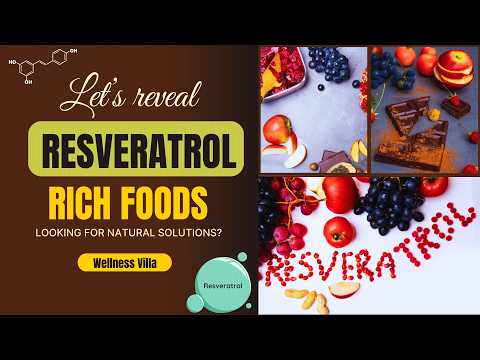
Effective Dosages for Health Benefits
Studies on resveratrol have suggested that the perfect quantity to take depends on the targeted health benefit. Here are five of the most studied dosages along with their effects:
| Dosage | Health Benefits |
|---|---|
| 1-2 mg daily | This is the usual daily intake from plants such as grapes, red wine, and berries. Even though the amount is quite small, it still provides antioxidants and helps the body with general health. |
| 20-50 mg daily | Daily supplementation at this level is associated with better heart health owing to the reduction of oxidative stress and inflammation. |
| 100-250 mg daily | Dosages within this range are mostly linked to better brain protection, such as the lowering of the risk of age-related decline and some studies reporting better memory. |
| 300-500 mg daily | In trials on metabolic health benefits, such as the enhancement of insulin sensitivity and the decrease of blood sugar levels, researchers usually detect positive effects at this dosing. |
| 1,000 mg or higher daily | Very often, such doses are found in clinical research and may be beneficial in the treatment of severe inflammatory disorders or as a support for the cancer prevention properties. Nevertheless, these doses must be taken under a doctor’s supervision since they might cause side effects. |
Important: A healthcare professional’s opinion is crucial before the start of resveratrol supplementation, especially when high doses are used, in order to find out the suitable quantity for an individual’s needs.
Precautions and Contraindications
Resveratrol capes to be really beneficial for the body, but its use needs to be well thought-out due to possible interactions and contraindications. For instance, the people using anticoagulants like warfarin or aspirin, should be careful as the combination of resveratrol and these drugs might lead to an increased risk of bleeding. Likewise, if a person has a bleeding disorder or a similar condition, a doctor’s consultation before starting the supplement is very important. Generally, pregnant or nursing women are not recommended to take resveratrol supplements because the question of safety for these groups is still ‘open’ due to lack of research.
Moreover, it is highly likely that resveratrol would not only interact with other drugs but also with dietary supplements. For instance, it has a possibility to affect diabetes medications and lead to very low blood sugar in glucose uptake. Furthermore, because of the drug and due to the influence of some liver enzymes, it is possible to slow down the process of drug metabolism resulting in drug accumulation in the body and eventually toxicity.
Under the circumstances laid out, it is advisable to seek professional guidance rather than to depend on self-dosing. The suitable amount of resveratrol is decided by a number of aspects, such as the patient’s health issue, types of medication that the patient is already on, and the general health aim of the patient. The potency and purity of over-the-counter supplements can be very different one from the other and therefore, it is crucial to get products from credible manufacturers. During the use of resveratrol, it is advisable to watch for side effects like upset stomach or skin rash and, if any negative effects occur, then stop the supplementation.
Potential Side Effects of Resveratrol
The general view is that resveratrol is safe for the most part if taken in moderate quantities, but still the side effects are a concern in some cases. The most common side effects are related to the digestive tract, among them are, for instance: nausea, diarrhea, and stomach pain. Usually, the effects are not severe and will go away in case the person taking the supplement gets used to the supplement. Nevertheless, a higher dose of the drug is linked to a greater chance of experiencing these symptoms, thus one must religiously follow the recommended dosages.
Interaction with drugs is another worry. Resveratrol has the ability to slow down the blood flow as it inhibits the gathering of platelets. Hence, it becomes a natural blood thinner and this poses a risk of bleeding especially if the patient is taking blood thinners or antiaggregants. Besides that, it might also hinder the effects of some drugs that are metabolized by the liver and are usually given for high cholesterol, certain infections, or fungal infections, e.g. statins, and some antifungal and antiviral agents. Therefore, it is always wise to see your doctor before taking resveratrol if you are on medication.
New studies have suggested the possibility of hormonal effects, as resveratrol imitates the action of estrogens. This is a problem when it comes to people with hormone-sensitive illnesses, like some kinds of breast or ovarian cancer. Although further studies are needed to provide details on the ramifications of these effects, it is generally advised that patients with such conditions refrain from using resveratrol unless directed by a doctor. Following the most recent scientific advances and talking to qualified healthcare professionals are effective measures in reducing the risks linked to resveratrol use and at the same time, capturing its potential benefits.
Practical Tips for Incorporating Resveratrol into Your Diet
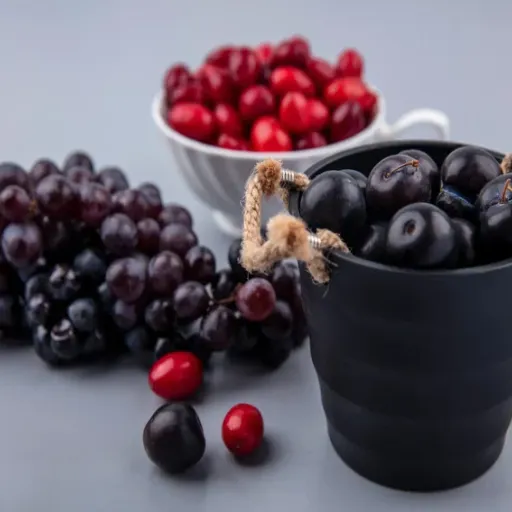
Simple Recipes: Resveratrol-Rich Smoothie
A mixed berry smoothie that is high in resveratrol content is an easy and delightful manner of taking this wonderful compound into your daily life. One easy method is to mix together a cup of fresh or frozen blueberries, a few red grapes, a ripe banana, and a cup of unsweetened almond milk. Blueberries and red grapes are resveratrol-rich fruits and they give the smoothie not only natural sweetener and nice taste but also very effective protection i.e. antioxidants. You can also add a teaspoon of chia seeds to your smoothie for a lot of omega-3 fatty acids and then blend everything together until you get a smooth mixture.
To further increase the nutritional value of your smoothie, you can add a handful of either spinach or kale. The taste of the greens will not be so overpowering but they will definitely deliver the needed vitamins and minerals. If you like very thick smoothies you can add a tablespoon of Greek yogurt or half an avocado. In addition, depending on your taste, you can also add a pinch of cinnamon or drizzle over honey to enhance the flavor.
The smoothie is one of the most convenient ways to obtain a quick and healthy supply of resveratrol. It has become my morning ritual and besides the energy boost, it helps me with my general well-being goals. If you want a simple and delicious way to incorporate more antioxidants into your diet, this recipe is a fantastic choice.
Creating a Healthy Trail Mix
Creating your own trail mix is not only a convenient way to get resveratrol-rich foods into your diet but it is also a very delicious method. First, you will need to choose a base of nuts, either raw or roasted, such as almonds, walnuts, or peanuts. These nuts are a significant source of protein and healthy fats. Then, if you want to get resveratrol from your trail mix, you can add dried red or black grapes which are the main source of resveratrol among the fruits. These fruits do not only give you the trail mix’s health benefits but also its sweetness, hence less sugar is required for them.
Next, the mixture is to be enriched with dark chocolate chips or cacao nibs as these two are among the very best sources of antioxidants, and so is resveratrol albeit in tiny amounts. Make sure to go for chocolate that is dark with the strength of at least 70% cacao since this will lead to the realization of health benefits and at the same time the amount of sugar will be minimized. In addition, you can take up a handful of either sunflower or pumpkin seeds which will be providing the extra vitamins and minerals that go with the antioxidant properties of resveratrol. A little bit of unsweetened coconut flakes can be used to flavor and lighten up the texture while the nutritional value remains intact.
In order to maintain the right balance of snack, it is good to keep the ratio of protein, fats and carbohydrates in your trail mix. Putting your mix in an airtight container is the way to go for the sake of portability and freshness. This healthy, customizable snack is great for curbing hunger between meals, providing sustained energy, and boosting your overall nutrient intake. You can try different combinations of nuts, fruits, and seeds until you find the one that suits you best, all the while enjoying the antioxidant benefits of resveratrol.
Sample Meal Plan for Resveratrol Intake
Breakfast
Oatmeal with Mixed Berries
Begin your morning with a serving of oatmeal mixed with fresh blueberries, raspberries, and blackberries. These berries are loaded with resveratrol and give the body a natural antioxidant lift. For healthy fats, sprinkle chia seeds and for sweetness, add honey.
Mid-Morning Snack
Trail Mix
Just get a handful of trail mix which includes walnuts, almonds, dried cranberries, and a few dark chocolate chips (at least 70% cacao). Chocolate and nuts have a moderate amount of resveratrol, thus they are great for keeping the heart and brain healthy.
Lunch
Grilled Salmon with Steamed Vegetables
A piece of grilled salmon is great when served with steamed asparagus and quinoa. Not only does salmon contain omega-3 fatty acids, but the resveratrol in asparagus also adds up to the meal’s overall nutrient content.
Afternoon Snack
Red Grapes and Green Tea
A pinch of red grapes along with a cup of green tea will make a great snack. Red grapes are among the top natural sources of resveratrol, and green tea has also presents a good amount of antioxidants.
Dinner
Lentil and Mushroom Stew
Create a robust lentil stew by adding onions, garlic, and shiitake mushrooms that you have sautéed. Shiitake mushrooms, among others, are known to support healthy immune function and carry a very small amount of resveratrol. Enjoy with whole-grain bread on the side.
Dessert
Dark Chocolate-Covered Strawberries
It is a great and tasteful way to end the day by having strawberries dipped in dark chocolate. With both strawberries and dark chocolate providing antioxidants, this dessert is a delightful and healthful way to get more of the antioxidant, resveratrol, in your diet.
Note: The arrangement of this meal plan is such that resveratrol is consumed steadily all day long accompanied with a non-processed, nutrient-dense and edible variety of food groups that optimize overall health. The portions and ingredients can be adjusted according to your specific dietary requirements.
References
-
-
-
Chronic administration of resveratrol or N-PEP-12 ameliorates endothelial dysfunction in aging rats
This study highlights resveratrol as a polyphenol found in over 70 plant species and food products, including red grapes. -
Resveratrol and procyanidin content in select Missouri red wines
This research analyzes the resveratrol content in red wines, a significant dietary source of this compound. -
The lifespan extension effects of resveratrol are conserved in the honey bee
This paper explores the effects of resveratrol supplementation in diets, providing insights into its presence in food. -
Food for thought–resveratrol vs. exercise training
This article discusses resveratrol’s anti-aging properties and its notable presence in red wine. -
Current analytical strategies for the determination of resveratrol in foods
This paper reviews methods for extracting and quantifying resveratrol in various foods, summarizing recent advancements.
-
-
Frequently Asked Questions (FAQ)
Q: What exactly is resveratrol and in which foods can we find it?
A: Resveratrol is a phytochemical that occurs naturally and is present in several foods where it is most particularly found in grapes’ skins. Resveratrol is also present in other foods like red wine, peanuts, blueberries, and dark chocolate. The foods, besides being sheer delight, are also abundant in antioxidants and inflammation control which, in turn, lead to health benefits.
Q: What is the percentage of resveratrol in red wine?
A: The resveratrol content of red wine depends a lot on both grape variety and vinification. Per milliliter, red wine carries mean values of somewhere between 1 and 3 mg of resveratrol in a liter. This concentration is capable of imparting health benefits, especially in the case of cardiac health.
Q: What are the main health benefits of resveratrol?
A: Resveratrol has been one compound whose benefits are trumpet and its heart, immunological, and metabolic health effects are strongly among the reasons for that. Not to mention, it is a fighter against oxidative stress due to its antioxidant character, which is one of the reasons chronic diseases are developed.
Q: Is it possible to obtain enough resveratrol solely from food sources?
A: While grapes red wine and peanuts are rich sources of resveratrol, it is difficult to get the amount needed for therapeutic use just through food. A number of people opt for resveratrol supplements to make sure they get the needed amount of this health-promoting compound.
Q: What’s the health benefits dosage of resveratrol that is recommended?
A: In terms of an official recommended dose of resveratrol, there is none, but clinical studies have indicated 100-500 mg per day as the range conferring health benefits. Always get the advice of a healthcare specialist before you start a supplementation regime.
Q: Are there any adverse effects linked to resveratrol supplementation?
A: Resveratrol is usually deemed safe for the majority of individuals when prescribed doses are followed. Nevertheless, there is a small chance of mild side effects such as tummy upset for some specific people. So, it is always better to keep track of how your body reacts and if you have concerns, please consult your doctor.
Q: What is the connection between resveratrol’s bioavailability and effectiveness?
A: Bioavailability of resveratrol means how much is absorbed and the amount that the body makes use of it. Resveratrol is quickly metabolized which can be a hindrance in its effectiveness. Eating foods rich in resveratrol or taking supplements meant for higher absorption might help to increase its bioavailability and consequently therapeutic effects.
Q: What are some other food sources known to contain a good amount of resveratrol?
A: Resveratrol is not only found in grapes and red wine; also blueberries, cranberries, dark chocolate, and some nuts like peanuts are the other foods that contain it. Adding these foods to your meals can help meet the requirement for this super antioxidant.
Q: What is the mechanism through which resveratrol becomes heart’s ally?
A: Resveratrol might be a good companion for the heart by enhancing blood circulation, anti-inflammatory effects and heart diseases prevention. The protective role of antioxidants in blood vessels is one of the factors making resveratrol incorporation into the diet support heart health.






